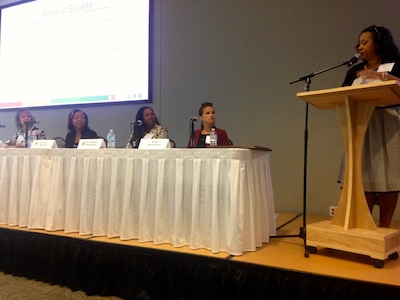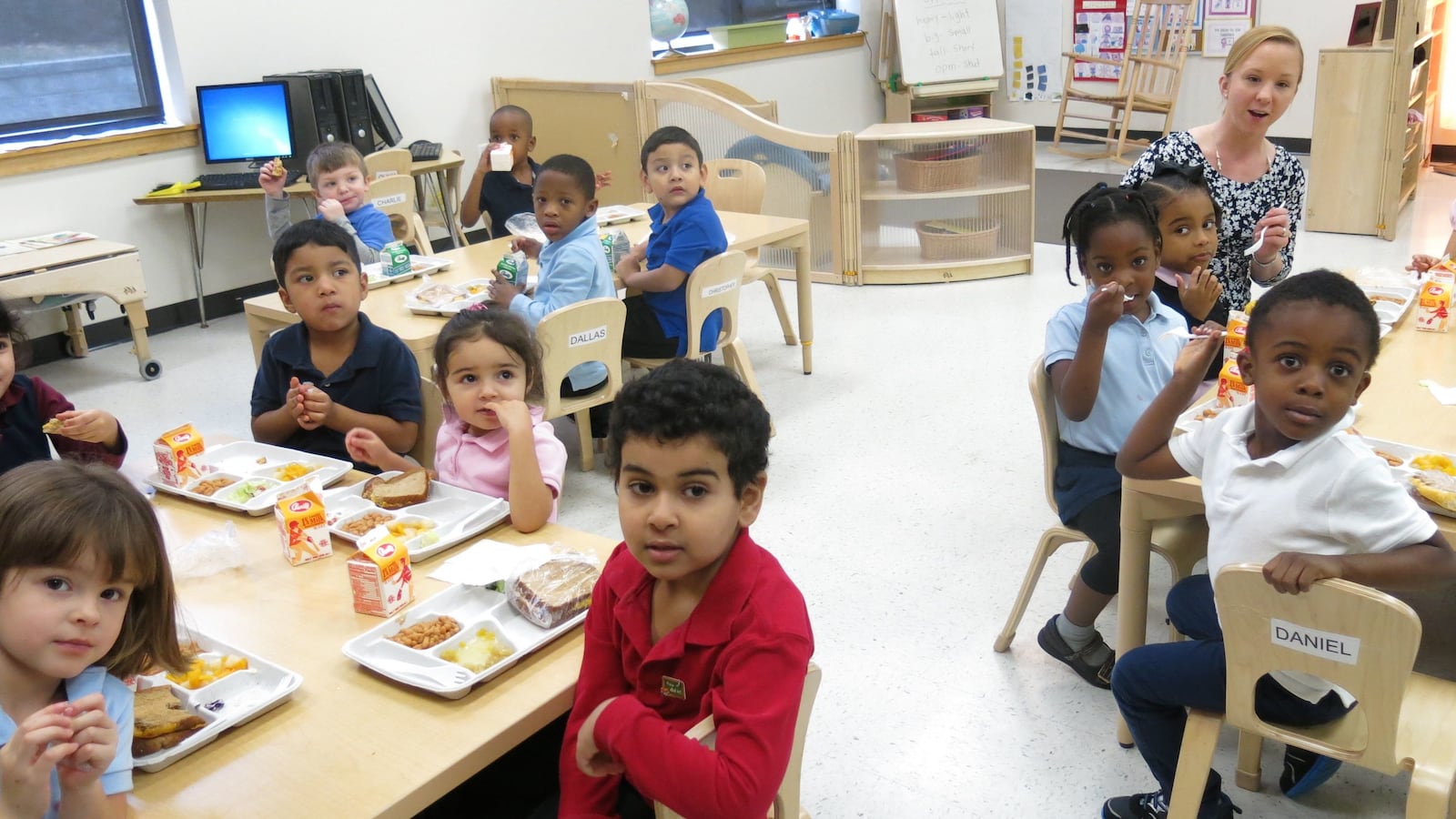What has Tennessee’s recent $70 million federal pre-kindergarten grant bought so far?
About 280 new pre-K seats in four Shelby County districts this fall, to start, according to movers and shakers in the state’s early education world who tackled that question during a pre-K summit Tuesday in Memphis.
Local education officials are counting on pre-K as a way to ensure that students start kindergarten on the right track — even as a recent study questioning the effectiveness of Tennessee pre-K programs complicates that assumption.
Here’s the news that came out of this week’s summit — and the unsettling warning that a study’s lead researcher shared.
1. Shelby County will have 280 more kids in pre-K this year than last.
Last year, the expansion grant paid for dozens of new pre-K classes for the “Shelby County Consortium,” or Shelby County Schools, the state-run Achievement School District, Millington Municipal Schools and Bartlett City Schools. The four districts received $32 million of the grant, which will be given out over the course of four years. According to district officials, this year’s funding will allow:
- Shelby County Schools to add seven classrooms, serving 140 students
- The Achievement School District to add five classrooms with 100 students
- Bartlett City Schools to add one pre-K site for 20 students
- Millington Municipal Schools to add one site serving 20 students
Altogether, about 2,000 4-year-olds eligible for free pre-K in the county still don’t have access to early education, according to Lorri Jobe, executive director of the PeopleFirst Partnership, a coalition of business, government, academic and civic leaders that helped organize the forum.
2. Shelby County is leaning heavily on partners to make sure pre-K students don’t go hungry.
Pre-kindergarten isn’t just a time for children to get a first taste of school. It’s also a chance for the county to understand — and meet — some kids’ needs for the first time.
“Many of our children were hungry and underweight by a large extent,” said DeAnna McClendon, director of early childhood programs for Shelby County Schools. “There are so many issues we don’t know until we hear from parents. We’ve had parents say come to us and say things like their lights have been off or that they didn’t understand how important it was to brush their child’s teeth.”
Officials from the four districts said they are leaning heavily on nonprofit partners, including Porter-Leath, to provide support services that the districts cannot.
Those services can include mentoring and nutrition support and are known as “wraparound” or “comprehensive” services. Another way to look at nonprofit partners, McClendon said: as “an advocate for each family” in navigating out-of-school challenges.

“Many students that we see in kindergarten have never been to school anywhere before,” said Jerri Jackson, who heads support services for the Millington school district. “They are starting a disadvantage. [Comprehensive services] are trying to reach those families first.”
3. More bad news about the impact of pre-K programs could be coming.
Many speakers alluded to last year’s sobering Vanderbilt University study that suggested that public pre-K programs in Tennessee might actually negatively impact students as they advance through school. They said the study proved that more pre-K is only better if the quality of instruction is strong — exactly the conclusion that prompted state legislators to pass a law designed to improve Tennessee’s pre-K classrooms by requiring local districts to address some of the findings.
Dale Farran, the researcher who is leading the Vanderbilt project, said the “worst news” of the study was that at the end of second grade, children who didn’t have any preschool started to perform better than children who had. Now, she and her colleagues are reviewing the same children as fourth-graders.
“I can tell you that the preliminary data are suggesting that the kids who have been in pre-k are more anxious about themselves, they feel less conscientious, and report themselves as feeling as they have more problems,” she said.
Farran’s research team is also looking at the new pre-K classes being opened with the new federal funds. Researchers have visited 139 classes so far, she said, and what they’ve seen so far hasn’t inspired them.
“We should be expecting the same problem with sustained effects,” Farran said, “because the classroom practices we observed are very similar to the classroom practices we saw in the statewide pre-Ks.”
It’s “like the definition of being insane,” she said. “Why would we expect different outcomes?”


